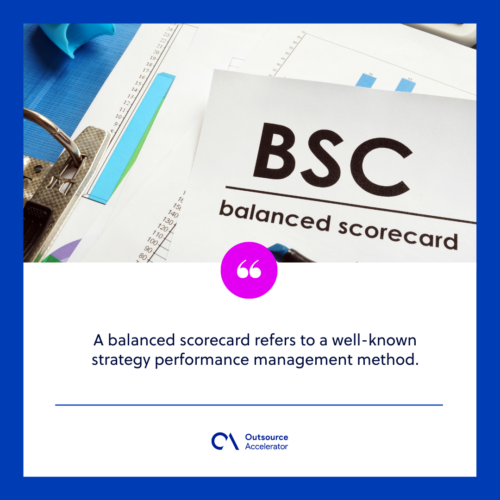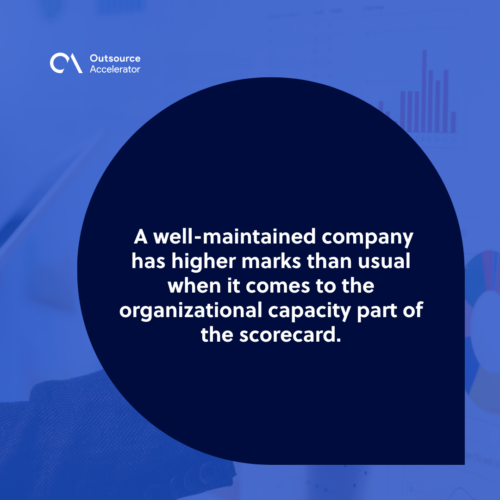Balanced scorecard
Definition
What is a balanced scorecard?
A balanced scorecard refers to a well-known strategy performance management method. It is used by executives and managers to track projects and to keep an eye on the performance of team members and employees.
By using this tool, each major decision made in a project is documented and teammates are well-informed about it. The data inputted in the card is transparent and reflects the progress of the individual.

4 Perspectives of a balanced scorecard
Scorecards are often made and developed with metrics and rubrics that one must excel at to achieve the highest possible rate.
If this sounds familiar, school systems often adopt this system to keep track of student scores. In the professional world, however, the stakes are so much higher than in academic institutions.
Customer and target market
Businesses do get rated for how they engage their customers and their target market. By doing so, business analysts can take a snapshot of how a company treats its consumers. From customer care to product development, each is rated and reviewed.
The higher the rate is, the better the company treats its customers by providing amazing service and by retaining consumers instead of losing them to competitors.
Organizational capacity
This metric refers to how the company takes care of its internal affairs, activities, projects, and more. Some businesses put emphasis on their leadership positions, while some provide their labor force as a whole.
Either way, a well-maintained company has higher marks than usual when it comes to the organizational capacity part of the scorecard.

Employee engagement
One of the heaviest sub-metrics out of organizational capacity is employee engagement. Workers are undoubtedly one of the most important aspects of a company. Without a labor force, a business cannot possibly thrive.
This is one of the reasons why employers are coming up with different ways to engage their workforce—simply because it is beneficial in the long run.
Quick ways to engage employees on a smaller scale
- Wellness check-ins
- Responding to feedback
- Coaching sessions
Finances
A company’s financial capacity is its strongest suit. Executives cannot force a company to thrive if its finances are slowly circling down the drain. The financial capacity rate is one of the heavier metrics on a balanced scorecard.
Transparency is important when it comes to revisiting transactions of a company as it is often based on past performance, historical and present data.







 Independent
Independent




